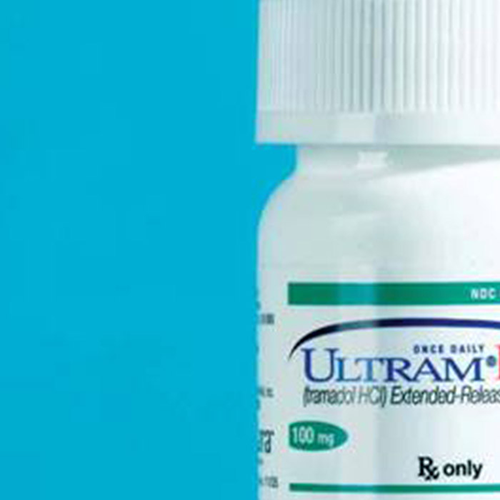
Ultram Withdrawal Treatment & Detox
Speak with a confidential treatment specialist today.(678) 771-6411

Ultram is the brand name for the drug tramadol, an opiate analgesic prescribed to patients with moderate or severe chronic pain and certain disorders that cause muscles to become stiff, tender, or painful. The drug most commonly comes in an extended-release pill or tablet for long-lasting relief.
Tramadol use has grown over the years. In 2011, tramadol was involved in over 20,000 visits to the emergency department throughout the United States. In Florida alone, tramadol overdose accounted for 379 deaths in 2011. The amount of tramadol is only growing. The Department of Justice found that retailers dispensed 43.8 million tramadol prescriptions in 2013
Symptoms of Ultram Addiction
Symptoms of Ultram Addiction
Ultram and other drugs containing tramadol are habit-forming because they essentially change the way your brain is wired. Tramadol blocks certain receptors in the brain to change how you perceive and react to pain. This can eventually develop into a tolerance, which forces you to take more of the drug to feel the same effects.
Tramadol, like other drugs, also works on the body’s dopamine amount. Dopamine is involved in movement, motivation, pleasure, reward, and a variety of other bodily functions. Using the drug causes a flood of dopamine. To adjust, the brain may produce less dopamine or block its effects, which forces you to use more tramadol to compensate. You get a sense of reward while also replenishing your body’s need for dopamine.
Symptoms of tramadol addiction include:
Neglecting responsibilities at home, school, or work to use the drug; Using the drug to attain a high instead of for its intended use; Using more Ultram than is prescribed; Needing the drug just to get out of bed in the morning; Becoming irritable when asked about your tramadol use
Tramadol Withdrawal Symptoms
Intense cravings; Flu-like symptoms; Nausea and vomiting; Diarrhea; Restlessness; Pain in bones and muscles; Paranoia; Hallucinations; Panic attacks; Numbness or tingling in extremities
Effects of Ultram Use
The Effects of Tramadol
As an opiate drug, Tramadol offers many of the same effects, primarily a high that is characterized by euphoric feelings and a sense of complete relaxation. This drives the pain relief function of the drug, but can also lead to abuse and a variety of unhealthy side effects.
- Dizziness
- Nausea and Constipation
- Weakness and fatigue
- Insomnia
- Mood swings
- Headaches
- Heartburn
- Uncontrollable shaking
Dangers of Ultram Use
Thanks to the mix of seemingly pleasurable effects and the surge in chemicals, Ultram use can easily lead to addiction. Addiction can create a variety of problems, and not just to your physical health. Addiction takes away the control you have over your life and your actions, forcing you to lash out, behave recklessly, and hurt yourself and your loved ones.
Extended tramadol abuse can cause some serious side effects. Most notably, tramadol can slow or stop breathing. It also presents a high risk for patients already suffering from depression or suicidal ideation.
Complications of Ultram Use
You should seek medical attention immediately if you experience:
- Seizures
- Fever
- Quickened heartbeat
- Agitation
- Swelling in the face, lips, throat, mouth, eyes, or extremities
Avoid using alcohol or other drugs while using Ultram, and avoid driving or operating machinery as the drug can impair coordination and cause dizziness.

Medical Intervention for Ultram Addiction
Medical Intervention
While tackling your Ultram addiction might seem intimidating, immediate medical intervention can help you regain control of your life and reverse the drug’s effects. Medicine can be used to stifle the effects of the drug, cope with withdrawal symptoms, curb cravings, and work the chemicals out of your system.
Many treatments for Ultram addiction involve the use of opioid antagonists, which essentially bind to opiate receptors in the body to block the effects of opiate drugs. To help your addiction, your doctor may prescribe:
- Methadone
- Buprenorphine
- Naltrexone
- Subutex
- Suboxone
RECOVERING FROM TRAMADOL ADDICTION
Road to Recovery
Many detox programs lead directly into rehab programs. Where Ultram detox gets the drug out of your system, rehab provides you with guidance, therapy, and classes to keep you sober and healthy in the long run. The most important part of rehab is having the support of trained professionals and the medical assistance you need to move forward on the path to recovery.

Find the Right Ultram Detox Center for You
At Georgia Drug Detox, our priority is helping you find an inpatient detox facility that fits your needs. If you have questions about insurance or the treatment process, please feel free to contact us. When you’re ready, call us at (678) 771-6411 and find a program that fits your personal needs.

